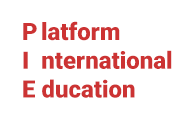Horizon Europe Framework Programme (HORIZON)
Deadline: Thursday 20th of April, 2023
Projects are expected to deliver solutions tailorable for specific usage models and particular market factors in order to contribute to all of the following outcomes:
- Accelerated global uptake of affordable, user and mission centric solutions tailorable for specific usage models e.g. occasionally transporting additional passengers (and particular market factors both in advanced and emerging markets).
- Effective design, assessment, and deployment of innovative low-cost but upgradable Electric Vehicles solutions (powered two-wheelers, light cars or microbuses) for the clean urban transport challenge.
- Higher sustainability and minimized cost by leveraging economies of scale but still offering flexible variations through modularity.
- Ensured ease of use in targeted urban and sub-urban areas that accounts for traffic and parking conditions as well as for battery charging/swapping points availability.
- Lower energy consumption by means of vehicle tailored to the urban environment conditions and constraints (e.g. lighter mass, suitable range and dynamic performances, higher utilisation of local resources, including reuse of components and systems, and eco-sustainable materials[1]).
Scope:
Urban spaces will be changing in the future. There will be a massive shift from the parking-lot culture in the city to recovery of living spaces as well as increasing intelligence in the urban spaces. Both will have a strong impact on individual means of mobility. New vehicle concepts that harmonize with these new developments, but also achieve widespread user-acceptability, will be needed. Platform concepts with sufficient variability will be able to meet the needs of both advanced and emerging countries.
New designs, shapes, architectures, and functionalities capable of delivering mass-market capable frugal versions for emerging markets and versions in the EU, associated countries and advanced markets with a single, generic platform, including swappable and interoperable battery systems (for L-category) should be covered. Proposals should address battery electric vehicles that are specifically better suited for operation (in appropriate versions) in future urban spaces both in emerging as well as established markets.
Proposals are expected to address all the following aspects:
- Systematic and thorough analysis of user centric needs, due to future evolution of urban areas representative for both emerging and established market use cases and of the required infrastructure development (e.g. charging infrastructure and related information and communication technologies).
- Development and demonstration of at least two variations of the modular and scalable vehicle (i.e. basic low-cost version and higher value version based on the same adaptable platform with high-production volume potential; optionally and additionally, proposals can foresee an extension to goods transport). For L-category vehicles this should include the option of swappable and interoperable standard battery systems (across world regions, for larger economies of scale) which can optionally be used for light vehicles or microbuses, for instance for range extension or emergency use.
- Validation with real electric vehicle(s) and related battery solutions testing, demonstrating the developed functions, in particular the capabilities of the proposed architecture in terms of payload, charging requirements, vehicle efficiency to optimise range and battery sizing, also to match local needs.
- Confirmation of user acceptability by showcasing the solutions in both emerging markets and established markets according to the purpose of the particular version.
- Assess the potential impact in terms of emissions reduction considering the potential scale-up opportunities of the addressed use cases, prioritizing higher impact use cases.
- Taking into consideration future development pathways for urban public, semi-public, private charging infrastructure adapted for such future urban vehicle concepts, in particular in the developing countries where such infrastructure is currently non-existent.
- Projects should deliver digital twin models of the demonstrator vehicles, so that the impact of the innovations towards the overall objectives of the 2ZERO partnership might be determined. Data that are produced as output from a ‘digital twin’ will be enacted in line with FAIR principles for data[2], and deposition in relevant repositories should be encouraged.
International cooperation with emerging economies e.g. from Asia and Africa is encouraged.
This topic implements the co-programmed European Partnership on ‘Towards zero emission road transport’ (2ZERO). As such, projects resulting from this topic will be expected to report on the results to the European Partnership ‘Towards zero emission road transport’ (2ZERO) in support of the monitoring of its KPIs.
Read more about this funding opportunity here.

